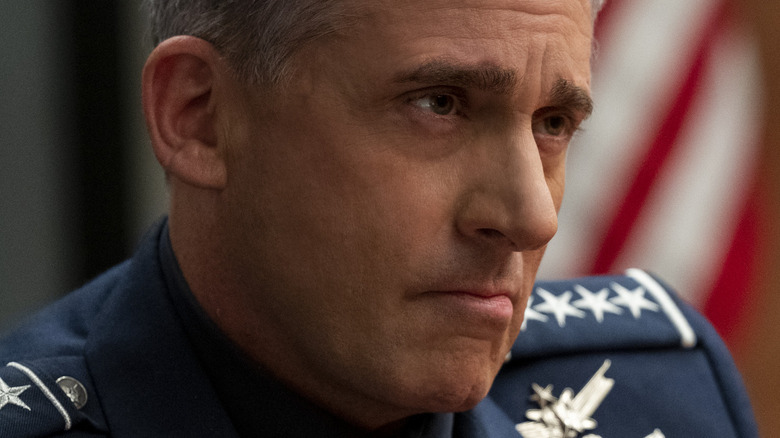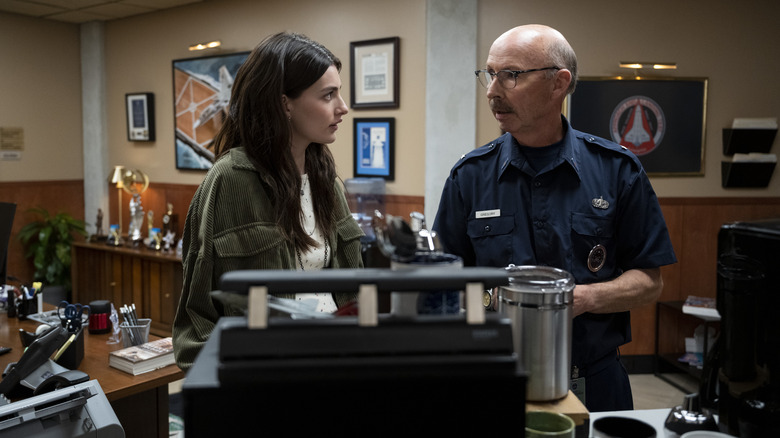Greg Daniels Continued A Trend From The Office To Space Force
Considering his most widely known projects, Greg Daniels' work can easily look like an unusually vast spectrum.
On one end, you have "The Office," a groundbreaking sitcom that — nearly a decade after its series finale — stood as the most streamed show in 2020 (per Variety). The show found a second life on streaming after a bountiful first life on NBC, which spanned nine seasons ranging in quality from generally well-received to universally lauded. "The Office" is already remembered as one of the most popular, beloved, and influential television shows ever made. On the other end of the Daniels Spectrum, however, you have "Space Force."
The biggest crime of "Space Force" is not that it wasn't funny, or even occasionally triumphant, but that it could never be timeless. A blatantly reactionary comedy spawned from one of President Trump's more ridiculous statements, its initial purpose was seemingly to poke fun at a fleeting zeitgeist that had already been comedically exhausted by the show's debut. Though "Space Force" began to find its footing in its second season by leaning into the comedic talents of its cast and exploring the Space Force concept beyond the innate absurdity, Netflix didn't renew the series for a third outing.
And yet, it's an odd shame that Netflix canceled "Space Force" when it did. After all, Daniels was on a path that had led him to success numerous times before.
Daniels reworked aspects of Space Force, as he had with The Office
Greg Daniels' longevity as a creator arguably comes from his willingness to experiment with new ideas. When he first began conceptualizing "Space Force" with Steve Carell, the duo wanted to be sure the new series had a distinct identity apart from "The Office" (per The Hollywood Reporter). Given the creative personnel that worked on both shows, it's genuinely impressive how different they feel from one another.
As Daniels told The Hollywood Reporter, to avoid repeating the visual language pioneered by his previous workplace comedies, "Space Force" attempted a form of cinematography inspired by Stanley Kubrick. While this strategy succeeded in giving Season 1 a unique aesthetic, it hindered the potential of the cast's ability to improvise. Because of this, Daniels gave the actors more flexibility while shooting the second season. Daniels' change seemingly resonated with critics as well, with Season 2 jumping to 75% on Rotten Tomatoes, from the first season's rocky 39%. Reviewing the show for Variety, Caroline Framke wrote, "[Season 2] isn't half as sleek or ambitious as the initial season, but the show at least seems much more comfortable in its own skin."
It's easy to forget, however, that both "The Office" and "Parks and Rec" took a little while to get off the ground. The Daniels Spectrum doesn't range from shows that worked to shows that didn't, but from shows that were nurtured over time and those that needed more time to grow.

